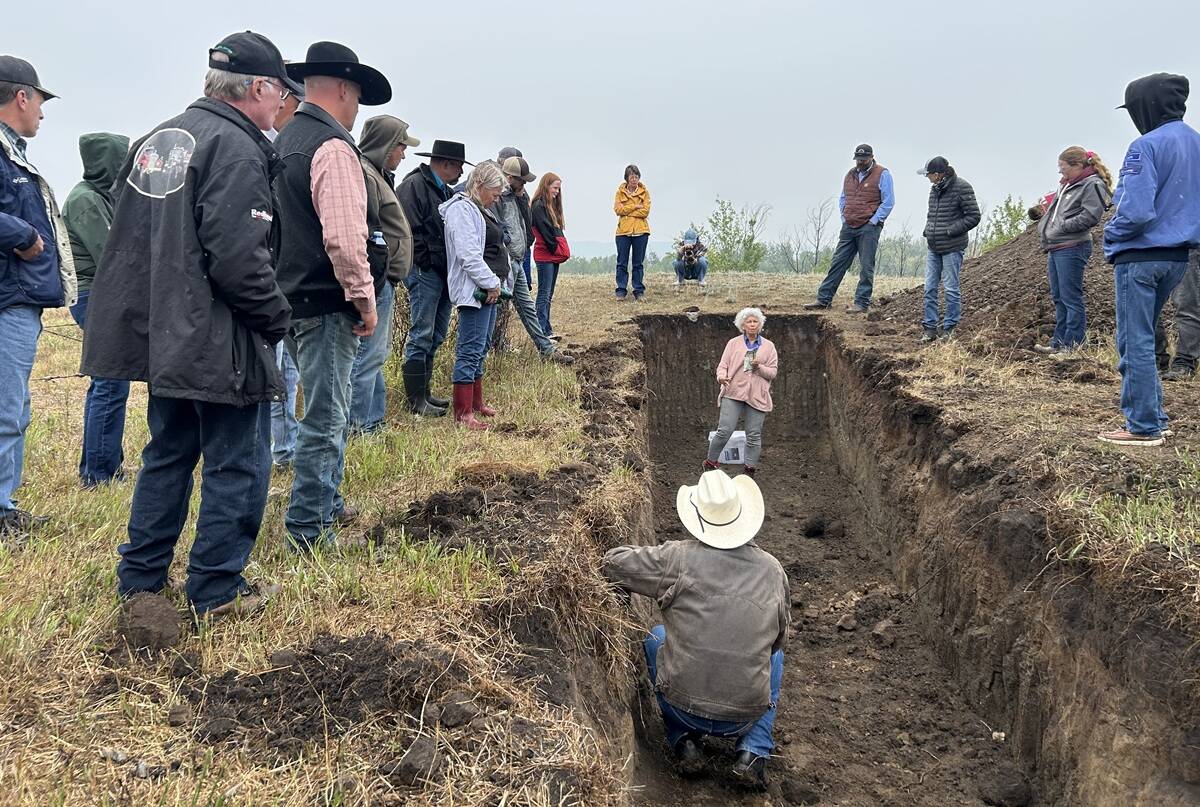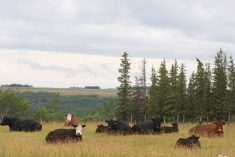October was a big month for the prime minister. First came the official launch of legal marijuana. Then he lifted the curtain on the government’s painful pricing plan for carbon pollution. Two election promises kept in one month, with up to a year to let the effects soak in and be forgotten before the next election.
I couldn’t help wondering if there wasn’t some subtle connection lying behind tying these announcements so close together. One causes pain, and the other helps you just shrug and let it drift away. Full disclosure: I’ve never tried the first one, but just like you I won’t be able to escape the effects of the second.
Read Also

Improving soil health on the ranch
Yamily Zavala, PhD, talks soil health for farmers and ranchers at a grazing club field day at Paradise Hill, Saskatchewan.
What Mr. Trudeau calls pollution, I call heat to warm my home in bitterly cold winters, or fuel to maintain our very way of life given the current state of transportation technology.
I can’t pretend to have closely followed all the science and pseudo science on climate change. It doesn’t really matter anyway. The weight of public and political opinion, with some notable exceptions, has determined that something must be done to turn the planet around before it is too late for humankind.
The odd thing is we Canadians were doing some things to cut down on our carbon emissions but not enough to meet the Paris Agreement target of 30 per cent below 2005 levels by 2030.
So we need to start paying at the pump to further discourage our personal carbon consumption. An output-based pricing system is also being established for large industrial emitters to match their contribution to the carbon load.
There has been plenty of time for everyone to digest how they will be affected by this new pricing plan. My main point of contention is that won’t do much to meet the stated goal.
Nobel-winning economists predict putting a price on carbon is the best way to drive down emissions. That may be true if we all reacted as the econometric models predict that we should.
But will we?
The carbon tax on fuel that Ottawa will impose in April on the provinces without a carbon fighting plan — Ontario, Manitoba, Saskatchewan and New Brunswick — starts at 4.4 cents per litre next year and increases to 11.05 cents by April 2022.
Let’s set that last one aside for the moment because it is long after the next election, so is immediately suspect.
The price of gas on this day in Winnipeg where I live varies from $1 to $1.05 per litre so if I add 4.4 cents to that is it likely to change my driving habits? No. Maybe if I lived in Victoria or some other place where the price is higher it would but I doubt it.
Large jumps in the price of gas are a normal occurrence in today’s world and just the cost of living a modern life.
The same reasoning goes into the 3.9 cents per cubic metre the tax will add to my natural gas bill.
It’s just another tax, added to the federal and provincial sales taxes and the GST and whatever else governments siphon off when I fill the tank on my six-year-old car. According to the 2018 Gas Tax Honesty report from the Canadian Taxpayers Federation, taxes account for 33 per cent of the pump price on gasoline and 30 per cent for diesel fuel.
Yet I see an increasing number of large SUVs and trucks in the city and rural areas, so if that amount of tax hasn’t altered their behaviour, what’s a little carbon tax going to do? Take more money out of our pockets, yes, but not move us any closer to a low carbon climate.
Besides, the government has said my wife and I will get a $255 rebate to cover the cost of my piddling contribution to greenhouse gas emissions on my next tax return. So I have even less reason to change my ways.
Mind you I am not a big consumer of fossil fuels, minuscule compared to most farms and ranches.
Fortunately farm fuel for trucks, tractors and other farm machinery substantially used for farm work is exempt from this carbon tax, so that eases some concerns for farmers and ranches. However, the cost of fuel to dry grain or heat barns or any of the other chores that don’t involve machinery does not appear to be covered by that current definition of exempt.
Then there all those other costs, like the rising cost for feed, and equipment, or parts (which are also hit by steel and aluminum tariffs), trucking charges and the hundred and one services that you buy that will go up in price to cover carbon taxes further down the supply chain.
Next April, while you are paying Trudeau’s carbon tax to help reduce Canada’s two per cent share of global gas emissions you might wonder what this does to your competitive position vis a vis the Americans. In the U.S. today’s corporate and individual taxes and heavy-handed regulations are being cut, and carbon has been officially declared somebody else’s problem.
Maybe I should try a bit of that new legal weed.

















